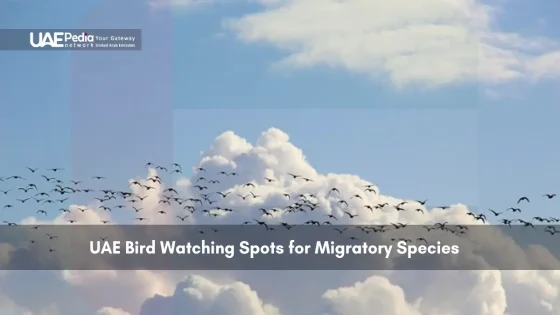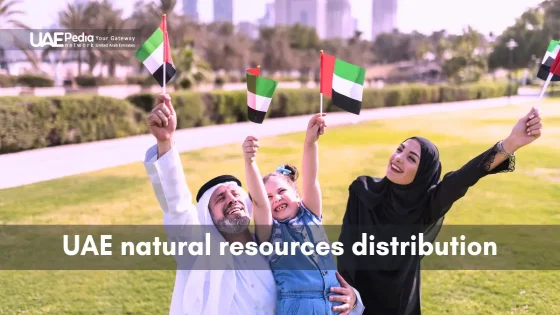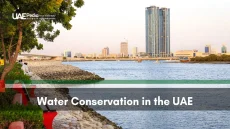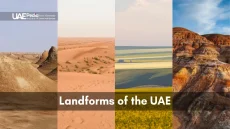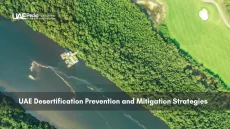Sea Temperature in UAE: a hot topic for marine biodiversity. Rising waters impact the UAE’s marine ecosystems. Native species face challenges as temperatures soar.
In the Persian Gulf, summer water temperatures can reach 36.0°C. This is as hot as worst-case projections for tropical coral reefs by 2100. For over 6,000 years, extreme heat has lasted, leaving fewer than 60 known species of reef fish surviving.
Current State of UAE Marine Ecosystems
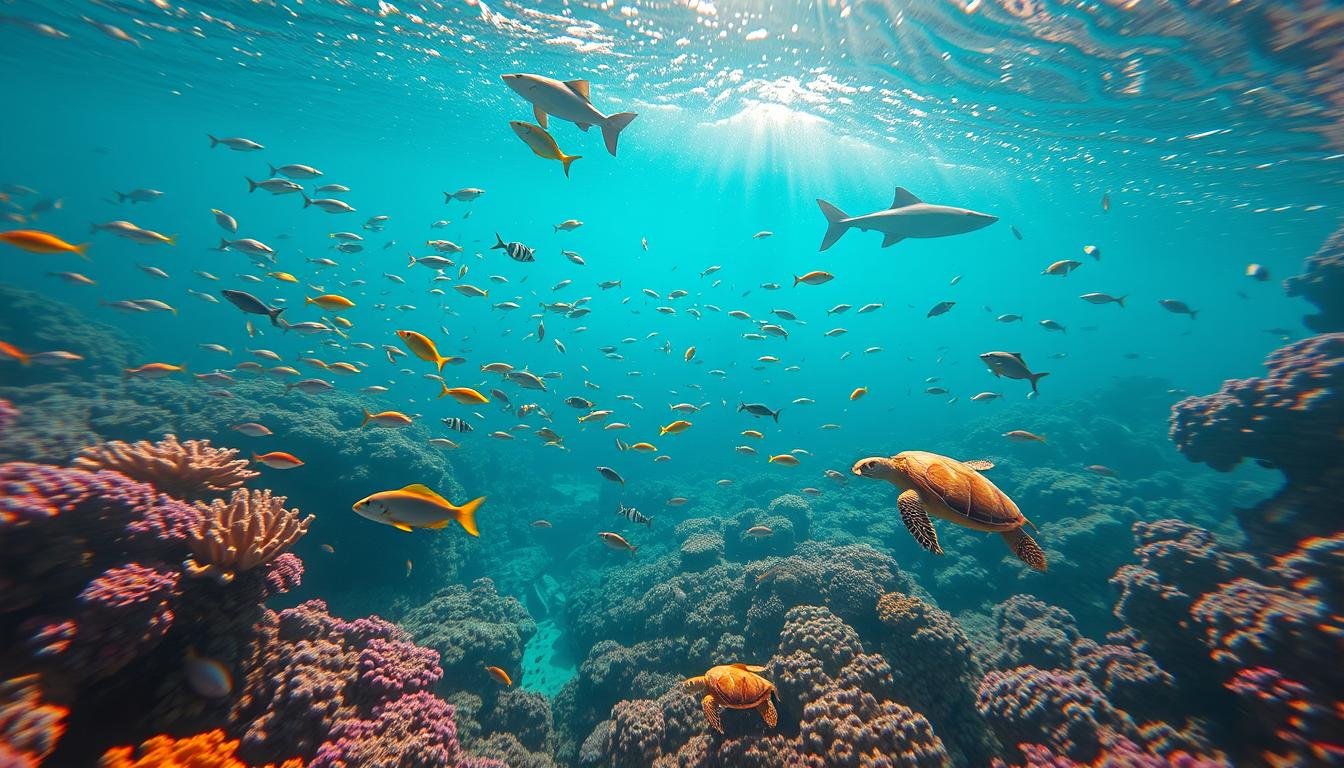
The UAE’s marine ecosystems are key to its geography. It has two coastlines, with the Arabian Gulf side being longer. This area is home to a wide variety of marine Life.
The Persian Gulf ecosystem is special. It has over 500 fish species, many dugongs, eight dolphin species, and different marine turtles.
Persian Gulf’s Unique Temperature Profile
The Persian Gulf is the world’s hottest sea. This high temperature is a big challenge for marine life. But, UAE marine species have learned to live in temperatures over 35°C for thousands of years.
This ability to survive is very important. Climate change is making these temperatures even hotter.
Native Marine Species Adaptation
Fish in UAE waters have special adaptations. They are usually 14-40% smaller than fish in cooler places. This size helps them survive in the warm waters of the Arabian Peninsula.
Critical Temperature Thresholds
Some species, like Lutjanus ehrenbergii and Scolopsis ghanam, have amazing traits. They can keep oxygen and work well up to 35.5°C. These abilities are key for them to survive in the UAE’s marine world.
- UAE has 43 nature reserves, covering 14% of its territory
- 10 sites designated as Wetlands of International Importance
- At least seven species of sea snakes found in UAE seas
Sea Temperature in UAE
The UAE has amazing sea temperatures all year. This makes it perfect for beach lovers. In Dubai, the sea water is currently 27.9°C, thanks to the warm Persian Gulf.
Sea temperatures in the UAE change a lot. In winter, Dubai’s waters are about 23°C. Spring brings them up to 25.8°C. Summer is the hottest, with temperatures reaching 32.9°C. Autumn stays warm, at 30.9°C.
Records show interesting trends in UAE ocean temperatures. The warmest water was 27.6°C in 2022. The coldest was 25.4°C in 2019. This data is key for tracking changes and their effects on marine life.
| Season | Average Water Temperature (°C) | Minimum Temperature (°C) | Maximum Temperature (°C) |
|---|---|---|---|
| Winter | 23.0 | 22.4 | 23.6 |
| Spring | 25.8 | 24.5 | 27.1 |
| Summer | 32.9 | 31.2 | 33.5 |
| Autumn | 30.9 | 28.7 | 32.1 |
The UAE’s sea temperatures make its marine environment unique. Dubai’s sea is very salty, at 39.30‰. This, along with the warm waters, shapes the UAE’s coastal ecosystems.
Impact on Marine Biodiversity
UAE marine temperature trends have greatly affected marine life in the Arabian Gulf. This unique ecosystem spans 1000 km and covers 240,000 km2. It faces many challenges due to rising sea temperatures.
Effects on Fish Population Size
The sea temperature’s impact on UAE marine life is huge. Fish populations are dropping, with sizes falling by 5-29% in recent years. By 2050, fish mass could drop by 14-24%, upsetting the Gulf’s balance.
Coral Reef Response
UAE sea temperature changes threaten coral reefs. With about 40 hard coral and 31 soft coral species, these areas are very vulnerable. Rising temperatures stress corals, leading to bleaching and habitat loss for many marine species.
Changes in Species Distribution
As temperatures change, so do species locations. The Gulf’s low biodiversity makes it very sensitive to these changes. Some species may move to cooler waters, while others may struggle to adapt, changing marine communities.
Migration Pattern Alterations
Changing temperatures change migration patterns of marine species. This can mess up feeding grounds, breeding cycles, and ecosystem dynamics. The UAE’s 1,300 km coastline is crucial for many migratory species, making these changes very worrying for marine conservation.
Conservation Initiatives and Protected Areas
The UAE has made big steps in marine conservation. Over 10% of its marine waters are now protected. This helps keep marine life safe.
Research on marine ecosystems is key in the UAE. The country studies how climate change and human actions affect the sea. This research helps make better conservation plans.
- Mangrove restoration projects
- Coastal clean-up activities
- Artificial coral reef initiatives
- Bans on single-use plastic bags
- Upgraded wastewater treatment infrastructure
The UAE has rules to manage fish stocks. This helps keep the sea healthy and ensures fish are caught sustainably.
| Year | CO2 Emissions (tonnes per person) | Reduction (%) |
|---|---|---|
| 1990 | 32.6 | – |
| 2010 | 21.9 | 32.8% |
The UAE is serious about protecting the sea. It has cut CO2 emissions by 32.8% since 1990. This shows its commitment to using clean energy and reducing pollution.
Climate Change Implications for UAE Waters
The UAE is facing big challenges because of climate change. Rising sea temperatures are harming its marine life. Dubai has seen its temperatures go up by a lot in 30 years, with summer highs reaching 50°C (122°F).
This problem is not just on land. It’s also affecting the ocean and the life in it.
Future Temperature Projections
Climate models say sea temperatures will keep going up. This will make the UAE’s seas even more affected. A recent big rain event showed how unpredictable the weather can be.
This event was made worse by global warming. It caused a lot of flooding and problems.
Threats to Marine Ecosystems
Rising sea levels are a big danger to Dubai’s coast and places like the Palm Jumeirah. The UAE’s sea life is under more pressure. Warmer waters are changing where species live and could bring in new, harmful ones.
This could upset the balance of the UAE’s marine life.
Impact on Fisheries and Economy
The fishing industry is important for local people. But it’s facing big challenges. Changes in the ocean could affect where fish live and breed.
This could harm jobs and food security in the UAE.
Desalination Challenges
Changes in the ocean could also affect how Dubai gets fresh water. Dubai is working hard to find solutions. It’s using new technology and treated wastewater for irrigation.
The UAE is also trying to be more sustainable. It’s using green building standards and teaching people about sustainable living.
AI-generated content, reviewed and edited by humans. Committed to upholding the highest standards of journalistic integrity.


